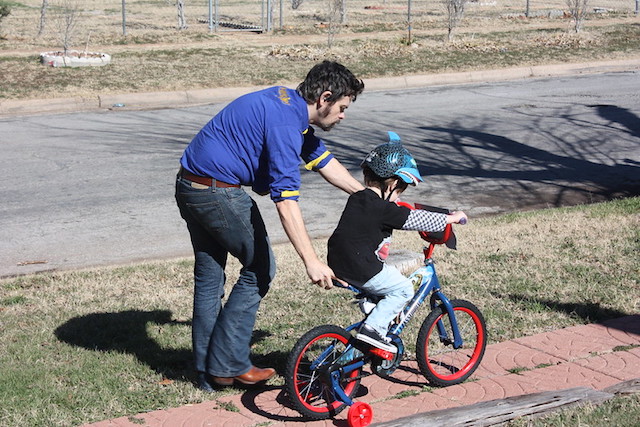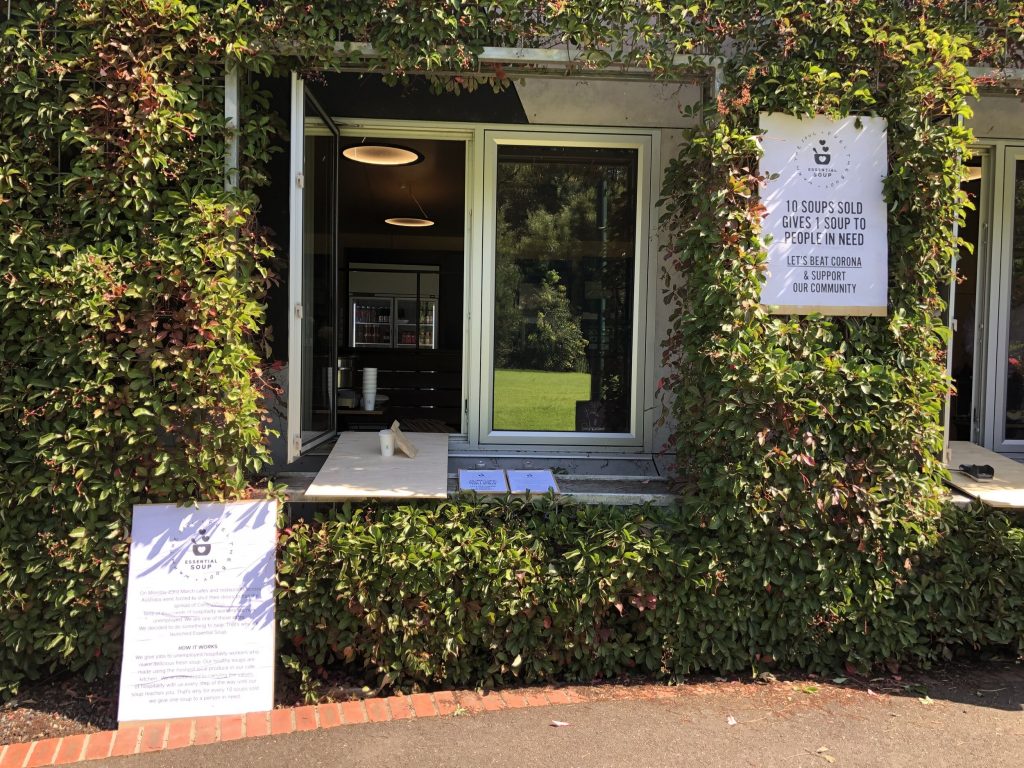Unlock the Magic in Your Story Now
Get the Free 20 questions to Ask Before Launching Your Idea workbook when you sign up for occasional updates.
Get the Free 20 questions to Ask Before Launching Your Idea workbook when you sign up for occasional updates.
Articles filed in: Meaningful Work
The Way To Lead
filed in Meaningful Work, Strategy, Success

A few years back, my son was leaving the train station in Perth when someone asked him for directions. He began to explain the route but stopped halfway. ‘I’m going that direction, why don’t I take you there,’ he said, leading the way.
One of the best definitions of leadership I’ve read, explains that it’s the act of showing someone the way to a destination by going in front of or beside them.
That implies if we intend to lead, we not only need to know the destination but also who we’re leading and whether we’re committed enough to walk in front or beside them.
Leadership is a journey that we take the responsibility for making together.
Image by several seconds
The Unremarkable
filed in Meaningful Work, Success, Worldview

Lately, we have come to recognise the remarkable contribution of the people many considered unremarkable.
The people who stack our food on the supermarket shelves through the night. The truck drivers who get behind the wheel every day ensuring deliveries reach us. Those who wake early to clean our hospital wards. The workers who once felt disposable, now suddenly seen as essential.
We’d begun to equate remarkability with visibility.
It turns out the two are not the same at all.
Sometimes it’s the thing we do that gets the least applause that makes the biggest impact.
Image by Martijn Baudoin
On Helping
filed in Meaningful Work, Success, Worldview

We like to be helpful. We’re physiologically wired for it.
The *science shows that helping others helps us to help ourselves.
Helping makes us happy.
So when people ask for advice or an opinion, we gladly offer it.
But before we can help, there’s a question we need to answer.
How exactly am I helping?
Sometimes the most helpful thing we can do is help people to help themselves.
*In helping others, you help yourself.
Image by Aaron Brinker
Ideas Worth Keeping
filed in Meaningful Work, Strategy, Success

Sometimes our best ideas come to us when we’re working with constraints. We’ve all seen hundreds of brilliant ideas and initiatives come into being as a result of communities being in isolation around the globe.
Local councils in London are calling at-risk elderly to ask if they need groceries or medicines delivered.
Villages have started newsletters to keep communities informed and together.
Neighbours are dropping care packages at the doors of vulnerable neighbours.
Supermarkets have changed store layouts, putting essential items at the front to cut down on shopping time.
Legoland is hosting live workshops to inspire children who are now home-schooled.
What ideas, routines and rituals have you started in the past few weeks that are worth keeping?
Image by Kelly Sikkema
Lessons From A Low-Touch World
filed in Meaningful Work, Worldview

Technology presents opportunities for efficiency and scale. And for the last century, conventional wisdom equated progress with efficiency—doing more with less friction.
We’ve worked hard to build systems that scale. Frictionless innovations for a low-touch world. Now, we’re beginning to realise that what we value most are the irreplaceable high-touch interactions that don’t scale.
It’s hard to replace the elation of a high five from a coach.
We miss the skill of a great hairdresser and the face-to-face service of a dedicated bookstore.
The reassurance of stethoscope applied to a chest during a doctor’s examination can’t be replicated in a telehealth consultation.
Technology gives us the capability to scale, but what we’re discovering now is the price we would pay for living in a frictionless world, and the things that matter to us are those that don’t scale.
[HT to my friend and colleague Mark Dyck who inspired this post during a conversation in our small business mentorship group the Right Company this week.]
Image by Adrià Crehuet Cano
Two Questions For Days Like These
filed in Meaningful Work, Worldview

Will we wake up in a few months and lament that we haven’t made more of this time in isolation?
The direct impact of current events is largely beyond our control. And yet it affects us indirectly, often in imperceptible ways. There are many things going on in the world that we can’t influence, but there is something we can do to minimise their indirect effects on our agency.
We have a choice.
We can allow time to trickle through our fingers as we refresh Twitter and binge-watch Netflix or we can do the things we’re glad to have done.
There are two questions we can ask ourselves at the end of each day.
What did I do today that I’m proud of?
What am I glad I did today?
We can mark time, without allowing this time to make its mark on us—and us on it.
Or we can try to do better each day.
Image by Edwin Hooper
If I Were You
filed in Meaningful Work, Strategy, Success
 If I were you.
If I were you.
Four words it’s tempting to use when someone shares a problem.
Four words I’m trying to avoid using—because I am not you.
I don’t know what it’s like to sit with what you’re experiencing or feeling at this moment.
You have the wisdom of past experiences to draw on.
Ideas you haven’t yet articulated, even to yourself.
How many solutions could you generate if you reflected on what you want and what your next right step might be? Many more than if someone just told you exactly what to do.
Image by Burst
Balancing Wants And Needs
filed in Meaningful Work, Strategy, Success

On a normal day, our local supermarket stocks fifty different kinds of pasta. Right now they’re stocking two. On a normal day, customers would complain bitterly about the lack of choice. Today they’re grateful to leave the shop with two boxes of a brand of penne they’ve never tried.
What we’re witnessing in real-time as we work together to keep ourselves and our communities safe, is a shift in priorities, for our customers, clients and us. We’re adapting. And as we do, there’s an opportunity to pay attention to what the people we serve want and need in this moment.
These skills we’re learning today will help us to be better innovators and creators, teachers and marketers, tomorrow.
What do the people you serve need now? What will they want in the future?
Image by Soroush Karimi
What Did You Do?
filed in Innovation, Meaningful Work, Strategy

A walk down my local café strip shows just how resourceful we can be when we’re in a tough spot. Because of world events and government guidelines around group gatherings, restaurants and cafes can no longer welcome diners into their premises. But they are quickly adapting.
Every café has come up with a solution. Many have changed to a takeaway menu, offering local delivery. Smith & Daughters partnered with their organic vegetable wholesaler to sell fresh produce. Ish, the local Indian restaurant has started a meal kit service.
And Kere Kere launched Essential Soup, to provide jobs to unemployed hospitality workers and nourishment to those in self-isolation.
Now is a time of uncertainty for many of us. A time when our plans and our usual routines have been upended and some of us have extra hours on our hands.
When this moment passes, we will look back at how we adapted. We’ll remember how we became more creative, resourceful and resilient. We’ll remind ourselves, and each other about what we did, how we pushed through and how we helped.
This time next year, how will you answer the question: What did you do?
Influence Vs. Impact
filed in Meaningful Work, Story Skills, Success

In a world where attention has become both currency and commodity, it’s tempting to believe there’s a direct correlation between influence and impact.
The modern definition of an influencer is someone who can persuade people with their recommendations. But it turns out, the people who have the greatest impact are not necessarily the people with the most influence.
Our impact isn’t only measured in crude metrics like attention.
Think about the people who have had the most impact on your life—a patient teacher, a caring friend or a wise mentor. These people likely made a difference, with something they continually did, not just something they once told you to do.
Change happens when more people seek to be less influential and more impactful.
We get to choose which matters most.
*We’ve opened The Story Skills Workshop again this week.
If you’re ready to increase your impact, I hope you’ll join us.
Image by Monika Kosub